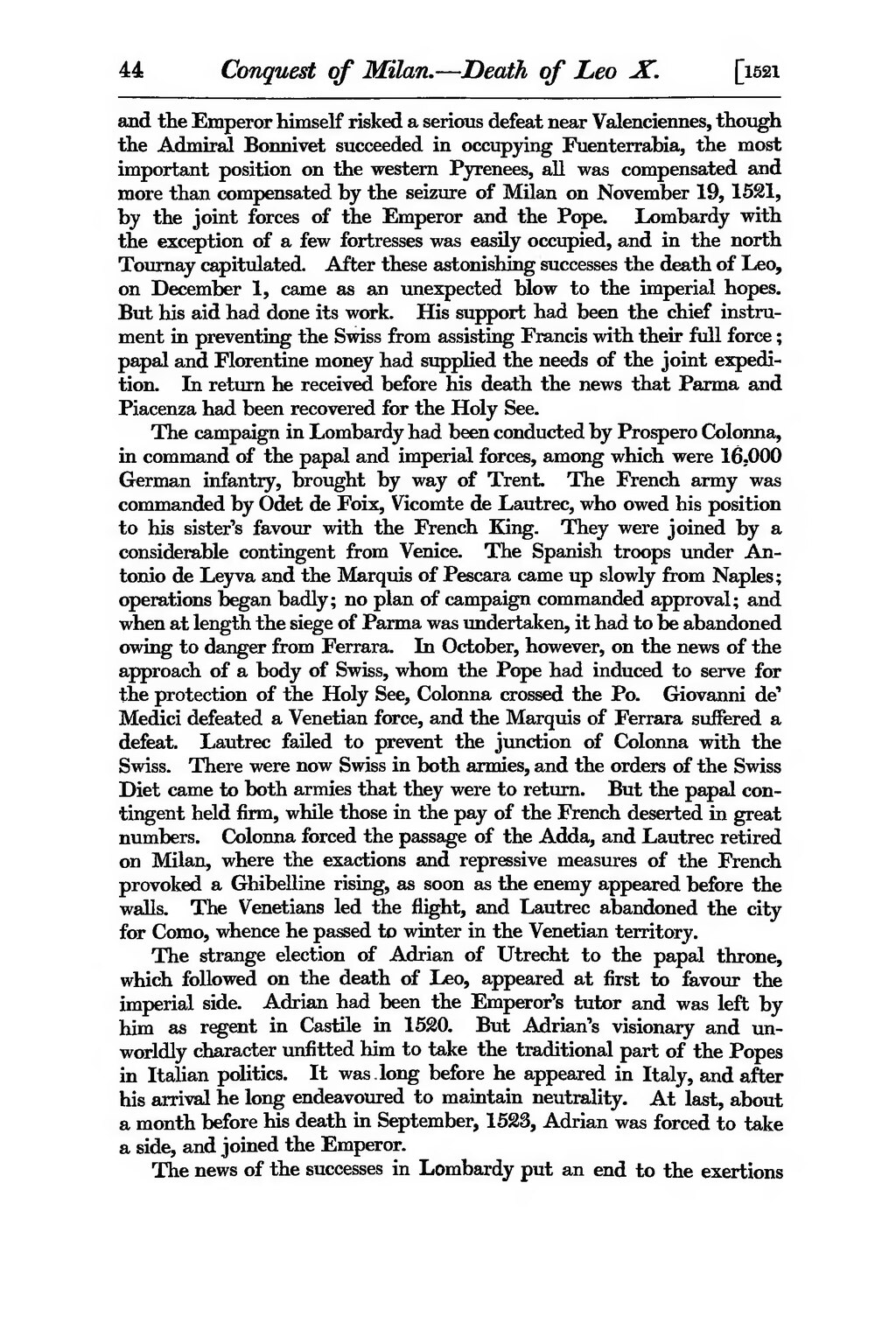and the Emperor himself risked a serious defeat near Valenciennes, though the Admiral Bonnivet succeeded in occupying Fuenterrabia, the most important position on the western Pyrenees, all was compensated and more than compensated by the seizure of Milan on November 19, 1521, by the joint forces of the Emperor and the Pope. Lombardy with the exception of a few fortresses was easily occupied, and in the north Tournay capitulated. After these astonishing successes the death of Leo, on December 1, came as an unexpected blow to the imperial hopes. But his aid had done its work. His support had been the chief instrument in preventing the Swiss from assisting Francis with their full force; papal and Florentine money had supplied the needs of the joint expedition. In return he received before his death the news that Parma and Piacenza had been recovered for the Holy See.
The campaign in Lombardy had been conducted by Prospero Colonna, in command of the papal and imperial forces, among which were 16.000 German infantry, brought by way of Trent. The French army was commanded by Odet de Foix, Vicomte de Lautrec, who owed his position to his sister's favour with the French King. They were joined by a considerable contingent from Venice. The Spanish troops under Antonio de Ley va and the Marquis of Pescara came up slowly from Naples; operations began badly; no plan of campaign commanded approval; and when at length the siege of Parma was undertaken, it had to be abandoned owing to danger from Ferrara. In October, however, on the news of the approach of a body of Swiss, whom the Pope had induced to serve for the protection of the Holy See, Colonna crossed the Pô. Giovanni de' Medici defeated a Venetian force, and the Marquis of Ferrara suffered a defeat Lautrec failed to prevent the junction of Colonna with the Swiss. There were now Swiss in both armies, and the orders of the Swiss Diet came to both armies that they were to return. But the papal contingent held firm, while those in the pay of the French deserted in great numbers. Colonna forced the passage of the Adda, and Lautrec retired on Milan, where the exactions and repressive measures of the French provoked a Ghibelline rising, as soon as the enemy appeared before the walls. The Venetians led the flight, and Lautrec abandoned the city for Como, whence he passed to winter in the Venetian territory.
The strange election of Adrian of Utrecht to the papal throne, which followed on the death of Leo, appeared at first to favour the imperial side. Adrian had been the Emperor's tutor and was left by him as regent in Castile in 1520. But Adrian's visionary and unworldly character unfitted him to take the traditional part of the Popes in Italian politics. It was long before he appeared in Italy, and after his arrival he long endeavoured to maintain neutrality. At last, about a month before his death in September, 1523, Adrian was forced to take a side, and joined the Emperor.
The news of the successes in Lombardy put an end to the exertions
